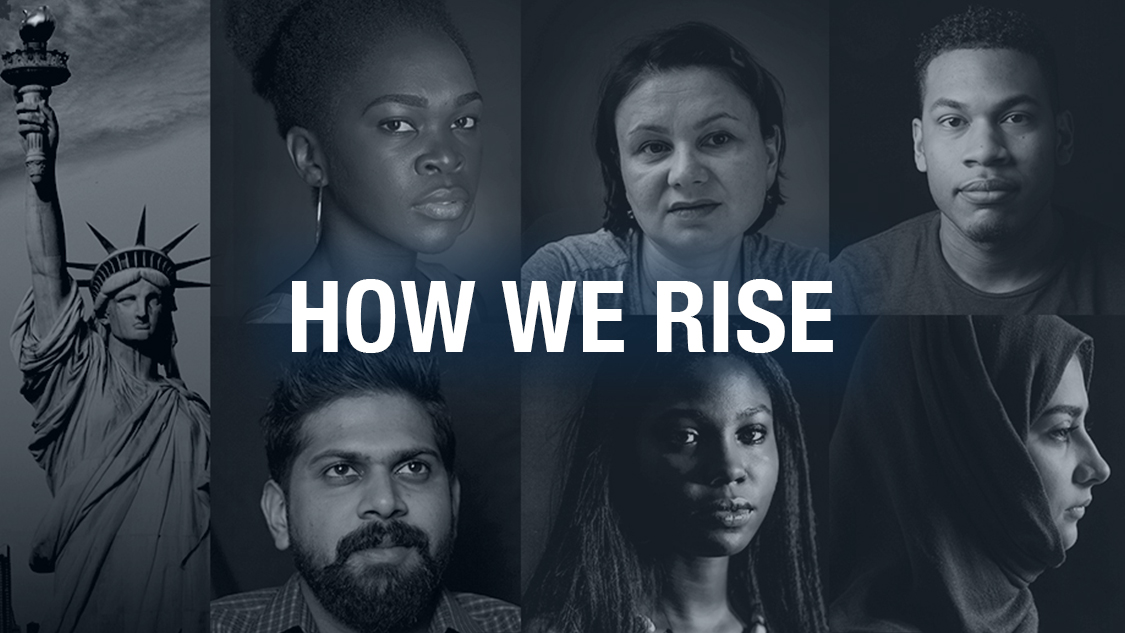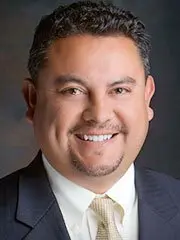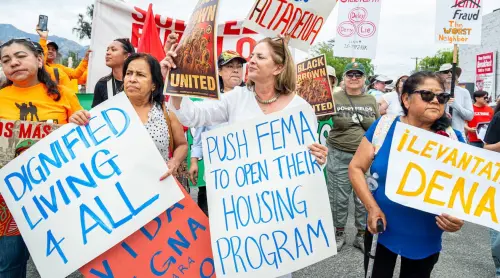Working with communities to develop policies that advance their collective well-being requires a high-level of trust building. Trust is the foundational element that enables confidence with multiple actors; it offers a pathway for honesty, open communication, and reliability in mutual understanding. Communities view themselves as coequal partners to elevate the knowledge base and priorities for policymakers and the policymaking process. The Race, Prosperity, and Inclusion Initiative (RPII) team at Brookings has engaged in a multi-phase research initiative focused on enhancing communities’ control of research and data governance to advance policy priorities. For the purpose of this blog, we focus on the role of trust, public data, and government.
In our stakeholder discussions that included government and community-based organizations, the common theme across conversations was engendering trust, which plays a powerful role in successful community-led data initiatives. The RPII team found that trust between all stakeholders in the data collection process is necessary for facilitating sustainable partnerships that advance the well-being of communities. Well-being reflects the capacity of communities to engage in meaningful actions that look to improve society and enhance the assets of their family, neighborhood, and community.
Distrust in government and public data has been rising
As our team and several other notable organizations and experts have documented over the last several years, trust across almost all levels of society has diminished. The 2025 Edelman Trust Barometer, which conducts an annual international survey on the public’s trust in institutions, found that 61% of respondents had a moderate or higher sense of grievance against government and the rich. This grievance then erodes trust primarily in government (25%), media (34%), business (42%), and NGOs (45%). In the United States, this is particularly seen at the federal government level, specifically in institutions like, Congress, the Executive branch, and other federally regulated departments. As trust in the federal government has dwindled, so too has the public’s faith in national media, especially with the rise of social media misinformation, presidential attacks on news organizations, and increasing partisan bias.
One of the emerging challenges within this larger trend is a similar decrease in trust across all aspects of data collection in the United States. A key dimension to this trend has been a rising concern regarding the protection of Americans’ personal data. According to research from Pew, since 2019 there has been a rise in concern among Americans about how the government uses their data, particularly among Republicans.
Our team’s conversations with a wide range of stakeholders, including researchers, nonprofit and advocacy organizations, city and municipal governments, and data and research hubs, identified concerns with how recent actions by the federal government may advance erosion in trust in federal data even further. The temporary removal of some datasets has generated worry among researchers about the prospect of wider censorship of data, especially as it relates to any data that tracks race or other social identities.
The experts we have spoken with have identified that there will be consequences associated with the shift in how data is managed by the federal government.
For example, we heard from one of our national nonprofit advocacy organizations that the federal government has reduced the public’s trust in safely sharing their attitudes toward the Trump administration’s policies through surveys and focus groups, which will have long-term consequences on data collection. This, coupled with the severe cuts in funding that supports research efforts, sends a strong message that data, particularly community-led data, is not valued in federal policymaking. This creates an environment that is highly competitive due to scarce resources—not an ideal environment to establish and rebuild trust with communities.
The corrosion of trust driven by the federal government’s lack of desire and capacity to protect Americans’ personal data, or to track important outcomes by race and other identities, will have significant consequences. The most direct impact of data censorship will be on our collective ability to identify racial and ethnic inequalities across important outcomes, including health. An important dataset that’s been impacted is the Center for Disease Control’s Behavioral Risk Factor Surveillance System (BRFSS), which is one of the most used datasets among public health and health policy scholars interested in the identification of inequalities in healthcare access, disease, and injury. The potential loss of this resource would stunt researchers’, communities’, and policymakers’ abilities to address inequalities through data-driven policy.
Specifically, the U.S. Census count, a process that requires Americans to trust the federal government with their personal information, would be significantly impacted by an erosion of institutional trust. Although President Trump will not be in office when the next Census count is collected, the setbacks during his administration could lead to potential hardships in data collection. For instance, Trump’s push to include citizenship status in the 2020 Census led to undercounts of Latino Americans and other migrant communities, which impacted the resources granted to predominantly Latino counties. Therefore, Americans’ high concerns about data security are expected to have a pronounced impact on the next Census count.
Rebuilding trust: the policy path forward
Still, there are a number of steps that can be taken to address the deficit of trust that community-based organizations, underserved communities, and the broader populace have in the government.
Numerous stakeholders we spoke with made clear that partnerships with local organizations are effective for establishing trust throughout communities:
- Some of our municipal stakeholders specifically noted that they seek to partner with community organizations that have pre-existing connections with communities. Accordingly, these intermediary organizations eased the process of building bridges of trust between communities and local government.
- One of our national-level organization stakeholders that engages in community-led data collection, noted that they found community-led data collection to be the most successful when spearheaded by organizations who already convene with community members for discussions and education. This highlights that progress toward formal data collection is much easier after trust is in place.
To infuse trust in communities, stakeholders agree an effective approach is to ensure that city and municipal governments center transparency when building data collection and dissemination tools. Notably, one of our municipal stakeholders has made transparency around data collection and data-informed policies the foundation of their work with communities, successfully achieving a city-wide culture around data transparency. By giving residents access to an open data network—despite how such information may reflect on the city, along with conducting data trainings with community leaders and collaborating with local businesses—the stakeholders have reinforced their values of openness and government accountability.
As other cities and municipal governments seek to fill in data gaps, largely attributed to the federal government’s manipulation and removal of datasets, these local efforts have remained grounded in transparency. The establishment and continuance of these practices will be pertinent to further ensuring trust across communities, along with local, state, and federal governments.
Governments should aim to deliver public services through a mutually collaborative approach, where lived experiences and perspectives of impacted individuals are actively informing and influencing interventions. What’s more, governments and the wider public policy community should not only aim to disseminate research and data, but to also showcase it in an accessible, easy-to-understand manner, therefore making a tangible difference to the welfare of the community.
Important steps to secure trust
- Rapport and transparency: Getting to know communities through attending neighborhood associations or monthly nonprofit meetings is critical for developing purpose-driven connections that center the needs of residents. Members of the local civil service could allocate full-time equivalent (FTE) for staff to attend these meetings to visit communities and learn about pressing local issues. City and municipal government officials should not only rely on communities to attend meetings they host but should also create multiple opportunities for communities to access and familiarize themselves with the policymaking process.
- Identify multiyear strategies: Communities understand the depth of issues challenging the well-being and safety of their members or residents. Planning to address or assist communities in addressing these challenges builds long-term relationships based on strategic plans for solving and preventing problems. These strategies offer regular opportunities for the co-design of quality and effective programs and services.
- Elements of trust for cross-collaborative partnerships: Fellow Brookings researchers in the Center for Universal Education highlight key elements for building and measuring relational trust among a diverse set of stakeholders. While this is centered in the education space, the underlying principles are applicable to different domains and the wider policy sphere, particularly regarding the need for respect, building a shared vision, and creating a culture of listening. Attempts to advance governmental agendas across diverse sets of actors often fail due to misaligned priorities and competing interests. However, when overlapping shared interests become the foundational pillar, more mutually beneficial partnerships can emerge. Connecting governmental efforts at a high level with trusted local entities and grassroots stakeholders can help spur locally led, cross-collaborative data solutions. Seeking common ground and shared agreements on the benefits and drawbacks of public data dissemination can help advance reforms and include typically marginalized perspectives in decisions and chart a sustainable path forward.
-
Acknowledgements and disclosures
The authors would like to thank Dr. Rashawn Ray, Carly Bennett, Kwadwo Frimpong, Meilyn Farina, and Zachary Affeldt for their meaningful contributions to this piece.
The Brookings Institution is committed to quality, independence, and impact.
We are supported by a diverse array of funders. In line with our values and policies, each Brookings publication represents the sole views of its author(s).









Commentary
What does the erosion of trust in data mean for equity in policymaking?
July 29, 2025